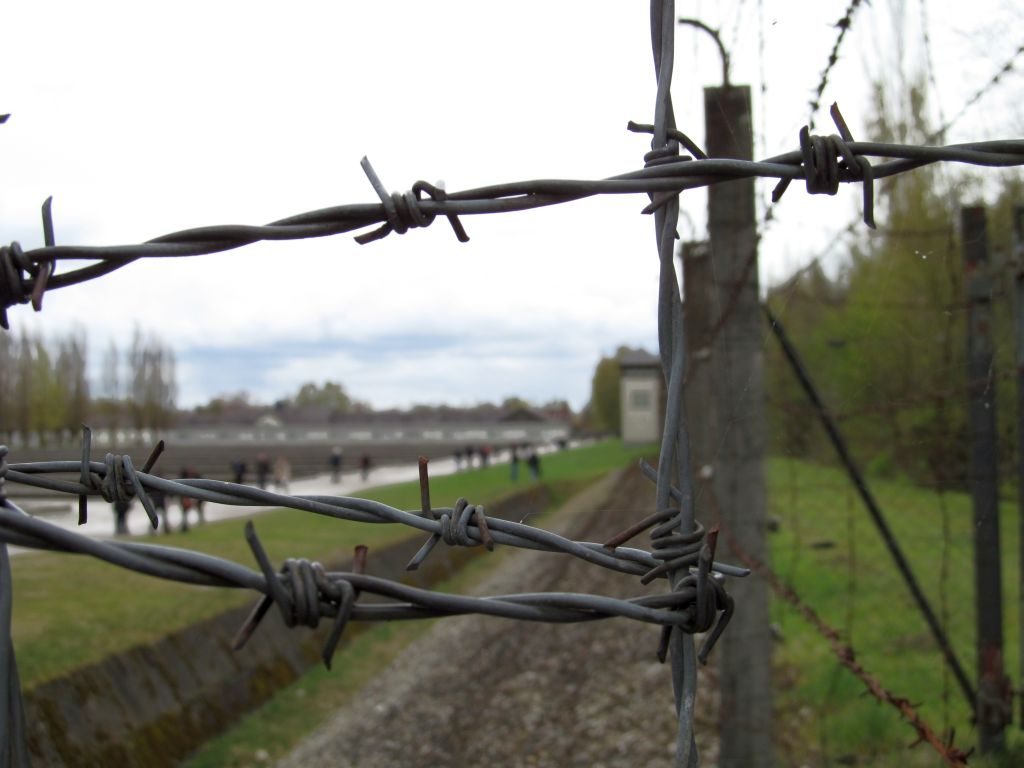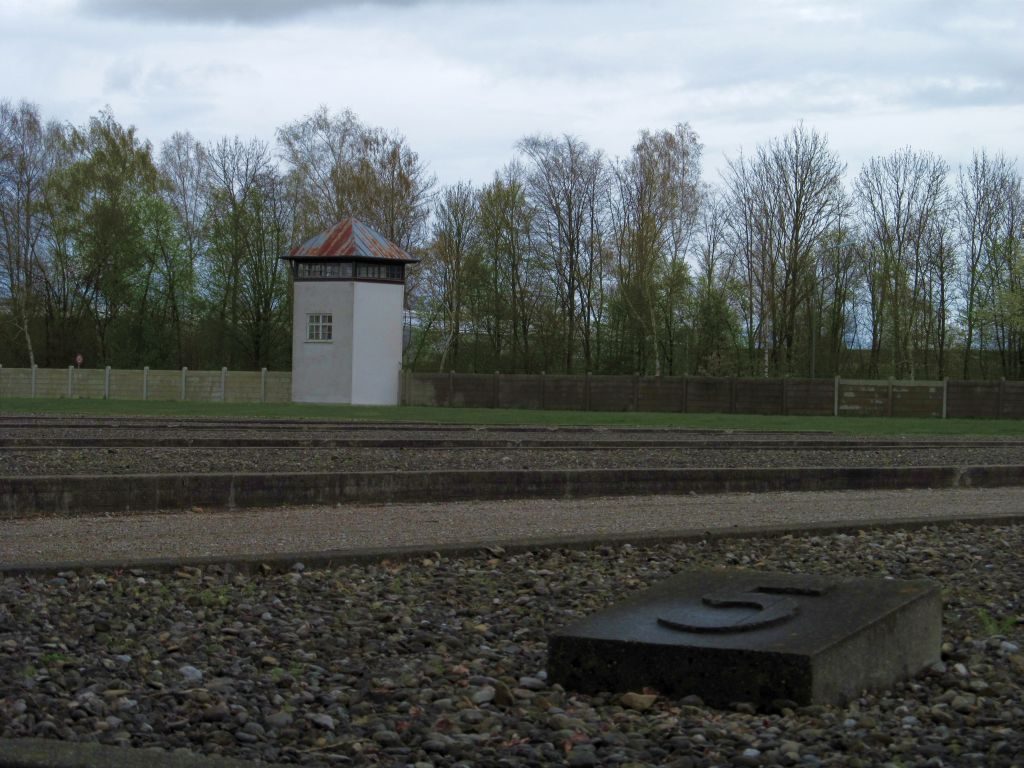Despite living in Germany for a year, and visiting a number of times before that, I only recently visited a concentration camp; left standing so all people never forget what horror is possible by human hands. These camps are technically no longer camps–their intended function and ability to terrorize was stripped by both physical force, and the force of conscience. We now call these places memorials, to preserve the memory of a devastating chapter in the history of man, so not to repeat it or allow it to repeat.
This brief post is not about the Dachau memorial per se, but more about the American students seemingly unaware of where they were, what happened beneath their feet 70 years prior, or what lessons their ignorance is preventing them from learning. If this sounds harsh, it is with good reason, and comes after feeling embarrassed to be American.
Dachau is about 16km from Munich, or about 30 minutes by regional train. The memorial is another 10 minutes from the train station. Before boarding the regional train I stood behind a group of teenage American girls struggling to buy train tickets from a machine. There were probably 30 or 40 American students loudly occupying the platform. I guess them to be high school seniors. Many were dressed in sweatpants, flip-flops, trendy t-shirts. They can’t be going to a Holocaust memorial dressed like this? I hoped.
After buying my tickets the group’s handlers began explaining what a tour may be like once arriving the Dachau concentration camp. They and I piled into the train. They and I presumably knew what had occurred at Dachau, as with other such camps. Presumably, I thought, they know roughly 200,000 people went through the camp. Presumably they understood people died at the camp. Maybe they didn’t know the exact number of the dead–nearly 32,000 bodies cremated on site–but they must have some historical context. Presumably they knew prisoners were beaten, interrogated, humiliated, and killed.
And if they did not know these things, maybe the students were willing to learn; to learn about the part of the camp meant to house only clergy; to learn about prisoners who ran into the electrified fence to escape their tormentors; to learn that this happened, and should never happen again.
But as the crowded students on the train became crowded students on a bus, I knew this group was not there to learn. These teenage Americans, crammed into a bus with the likes of me and mothers and small children, talked about their late-night exploits, their drinking, their thoughts on the nonsense of the day–all in a language to make a sailor blush. I wanted to say something. In many ways that would have been a German reaction; Germans, especially the elderly, tend to tell you when they think you are wrong in some way. I wanted to tell these kids to save the locker-room talk for later. (Guys and gals had equally terrible language) I wanted to remind them where they were headed. I wanted to remind them they are guests in a foreign country, and there are children on the bus. But I didn’t. I watched, and continued watching. Sometimes experiences need to unfold on their own.
Once at the memorial things did not improve. I picked up an audio guide, speaking German to a staffer overwhelmed with American-English. As I listened to a narrator explain how prisoners were off-loaded from train cars, or another explain how the SS troops would interrogate prisoners in a wooded building above the front gate, the students were huddled. Many looked uninterested, as teenagers do, slouched in their sweatpants and flip-flops. As light rain fell some student couples began kissing as if in the back of their parents’ car. Others continued their use of expletives near older visitors to the memorial. All of these things were happening where prisoners died, were tormented, and dreamed of leaving this place.
We all take different emotions and memories from our experiences. One student spontaneously cried when she realized what happened at the crematorium. Two of her classmates began making out in an adjoining room, where bodies of the dead were brought first.
I was embarrassed to watch these students.
I was angry that these students were not showing what I think is a proper level of respect for a site like this.
So too I was angry that I work hard to integrate into my adopted homes, and dispel American stereotypes, and these students did little to bridge cultural divides. There was something almost peaceful about Dachau, though. Bird song and forest were always in sight and in mind. Perhaps the change brought simply by time disarms the terror that once existed here. But a relatively empty space, and bird song, should not allow complacency or irreverence.
I did not say anything to these students. It was not my place. Maybe I am acting as a disgruntled old hand at this foreign living stuff. Maybe I am imposing my standards on someone else, unfairly judging them. Any maybe, in time, some of these students will log on to the internet or open a book and realize what happened beneath the ground on which they stood in flip-flops and sweatpants. And maybe then they will get it–that sometimes it’s okay to be an adult, and show respect.






